Key Takeaways
1. Embrace the software development journey: From novice to expert
"You don't have to be a genius or even have above average intelligence to be a software developer."
Start with the basics. Begin by learning one programming language thoroughly, focusing on its core concepts and syntax. As you progress, expand your knowledge to include frameworks, libraries, and best practices associated with that language. Remember that every expert was once a beginner, and the learning process is continuous in software development.
Build projects to gain experience. Apply your knowledge by creating small applications or contributing to open-source projects. This hands-on experience will help you understand real-world challenges and solutions, making you a more competent developer. As you tackle increasingly complex projects, you'll naturally develop problem-solving skills and learn to think like a programmer.
2. Master the technical skills that form the foundation of software development
"The technical skills you are going to need to know to be an effective software developer can feel overwhelming—crushing at times, especially for new programmers."
Core competencies: Focus on mastering these essential skills:
- Proficiency in at least one programming language
- Understanding of data structures and algorithms
- Knowledge of software design patterns and architecture
- Familiarity with databases and SQL
- Version control systems (e.g., Git)
- Testing methodologies and practices
Continuous learning: Stay updated with the latest technologies and industry trends. Attend conferences, participate in coding challenges, and engage with the developer community through forums and social media. This constant exposure to new ideas and techniques will help you grow as a developer and adapt to the rapidly evolving tech landscape.
3. Navigate the job market: Strategies for landing your first development role
"Getting your foot in the door and proving that you know what you are doing without any experience, certificate, or degree, can prove challenging."
Build a portfolio: Showcase your skills and projects through a well-organized portfolio website. Include detailed descriptions of your work, the technologies used, and the problems you solved. This tangible demonstration of your abilities can often speak louder than a resume alone.
Network and leverage connections: Attend local tech meetups, join online developer communities, and engage with professionals in the field. Many job opportunities are filled through personal connections, so building relationships can open doors to potential positions. Consider seeking out a mentor who can guide you through the early stages of your career and provide valuable insights into the industry.
4. Understand the software development lifecycle and methodologies
"Software development methodologies define the processes we use to build software."
Common methodologies:
- Waterfall: Sequential, linear approach
- Agile: Iterative, flexible approach
- Scrum: Framework for implementing Agile
- Kanban: Visual workflow management
- DevOps: Integrating development and operations
Choose the right approach: Understand the strengths and weaknesses of each methodology to select the most appropriate one for your project or team. Be prepared to adapt and combine elements from different methodologies as needed to optimize your development process.
5. Excel in testing and quality assurance to deliver robust software
"Testing, at its core, is really about reducing risk."
Types of testing:
- Unit testing: Verifying individual components
- Integration testing: Checking interactions between components
- Functional testing: Ensuring the software meets requirements
- Performance testing: Assessing speed and efficiency
- User acceptance testing: Validating the end-user experience
Implement test-driven development (TDD): Write tests before writing the actual code. This approach helps clarify requirements, improves code quality, and makes it easier to catch and fix bugs early in the development process. Regularly run automated tests to ensure that new changes don't break existing functionality.
6. Harness the power of source control for efficient collaboration
"Source control gives you a place to check in your code and keep it secure so that it can't be haphazardly deleted, and it allows you to keep track of changes so that if you accidentally delete some portion of the code or make a huge mistake, you can go back and fix it."
Key concepts:
- Repositories: Central storage for code
- Branching: Creating separate lines of development
- Merging: Combining changes from different branches
- Conflict resolution: Addressing discrepancies between versions
Best practices: Commit changes frequently, write clear and descriptive commit messages, and use meaningful branch names. Regularly pull updates from the main branch to stay synchronized with your team's work. Understand and follow your team's branching strategy to maintain a clean and organized codebase.
7. Continuously evolve your skills to thrive in the ever-changing tech landscape
"You will always be able to get better—if you choose to."
Stay curious and adaptable: Embrace new technologies and programming paradigms as they emerge. Set aside time regularly to explore and experiment with new tools, languages, or frameworks that could enhance your productivity or open up new career opportunities.
Cultivate soft skills: While technical proficiency is crucial, don't neglect the importance of soft skills such as communication, teamwork, and problem-solving. These skills can set you apart in the job market and help you advance in your career. Seek opportunities to collaborate with others, present your ideas, and take on leadership roles in projects to develop these essential competencies.
Last updated:
FAQ
What's The Complete Software Developer's Career Guide about?
- Comprehensive Resource: The book is a detailed guide for software developers, covering career stages from starting out to advancing in the field.
- Five Main Sections: It is divided into sections that address getting started, finding a job, understanding software development, working as a developer, and career advancement.
- Soft Skills Focus: Emphasizes the importance of soft skills alongside technical skills, aiming to equip readers with a holistic understanding of the industry.
Why should I read The Complete Software Developer's Career Guide?
- Addresses Common Concerns: It answers questions about starting a career, job hunting, and salary negotiation, filling a gap in available resources.
- Real-World Experience: Author John Z. Sonmez shares personal experiences and lessons, providing practical insights into both technical and non-technical aspects.
- Actionable Advice: Offers strategies and tools like the Software Developer Skills Assessment to help readers assess skills and plan career paths effectively.
What are the key takeaways of The Complete Software Developer's Career Guide?
- Importance of a Plan: Emphasizes having a clear career plan, including skills to learn and job application strategies.
- Networking and Reputation: Highlights the importance of building a professional network and personal brand for career advancement.
- Continuous Learning: Stresses that learning is a lifelong journey in software development, encouraging readers to keep skills updated.
What are the best quotes from The Complete Software Developer's Career Guide and what do they mean?
- "If you have a dream...": Encourages taking action rather than getting stuck in planning, emphasizing the importance of starting.
- "You have to trust the process.": Reminds readers that success requires patience and persistence, with progress coming over time.
- "If you are going to spend...": Critiques traditional education, stressing the importance of seeking real knowledge and skills beyond just a degree.
How can I get started as a software developer according to The Complete Software Developer's Career Guide?
- Assess Your Skills: Use the Software Developer Skills Assessment to identify strengths and weaknesses.
- Choose a Learning Path: Consider college, coding boot camps, or self-education, each with its pros and cons.
- Start Coding: Learn a programming language and work on small projects to gain hands-on experience.
What technical skills do I need to have as a software developer?
- One Programming Language: Start with one language to build a solid foundation, focusing on depth over breadth.
- Algorithms and Data Structures: Essential for solving complex problems efficiently, setting you apart from other developers.
- Development Tools: Familiarity with platforms, source control systems, and testing frameworks is crucial for a well-rounded skill set.
How do I find a job as a software developer?
- Create a Strong Resume: Craft an effective resume that highlights skills and experiences, presenting yourself well.
- Network Effectively: Build a professional network through meetups and social media to connect with potential employers.
- Apply Strategically: Focus on quality applications tailored to specific roles, highlighting relevant experience.
What is the difference between being a contractor and a salaried employee as discussed in The Complete Software Developer's Career Guide?
- Flexibility vs. Stability: Contractors have more flexibility, while salaried employees enjoy job security and benefits.
- Compensation Structure: Contractors may earn higher rates but lack benefits, requiring careful financial evaluation.
- Work Environment: Contractors may feel like outsiders, while employees often have a stronger sense of belonging.
How does the recruiting industry work according to The Complete Software Developer's Career Guide?
- Recruiter’s Perspective: Recruiters work for companies, not candidates, so proactive job searching is essential.
- Types of Recruiters: Understand differences between independent, agency, and internal recruiters to navigate the job market.
- Negotiation Tips: Leverage knowledge of the recruiting process to negotiate better salaries and job offers.
What is the significance of continuous integration in software development as described in The Complete Software Developer's Career Guide?
- Automated Builds: CI automates building and testing code, catching errors early for efficient development.
- Faster Feedback: Provides immediate feedback, allowing for quick adjustments and improvements.
- Reduced Integration Issues: Frequent integration avoids "integration hell," promoting smoother workflows.
How can I improve my coding skills as suggested in The Complete Software Developer's Career Guide?
- Practice Regularly: Consistent practice enhances skills, solidifying understanding through projects.
- Learn New Technologies: Stay updated with programming languages and frameworks to remain competitive.
- Engage with the Community: Participate in coding communities and open-source projects for learning and networking.
How can I effectively deal with difficult coworkers as discussed in The Complete Software Developer's Career Guide?
- First Impressions Matter: Establish positive relationships by being confident and approachable.
- Be Helpful: Offer assistance to foster goodwill and enhance your reputation as a team player.
- Avoid Drama: Focus on work and maintain professionalism, steering clear of workplace drama.
Review Summary
The Complete Software Developer's Career Guide received mixed reviews. Many praised its comprehensive advice on career development, productivity, and both technical and soft skills. Readers appreciated the practical insights and motivational tone. However, some criticized the author's self-promotion, dated views on workplace diversity, and occasional inappropriate analogies. The book's length and repetitiveness were also noted. Overall, it was considered valuable for aspiring and junior developers, though more experienced professionals found less novel information. The book's focus on male developers was a point of contention for some readers.
Similar Books
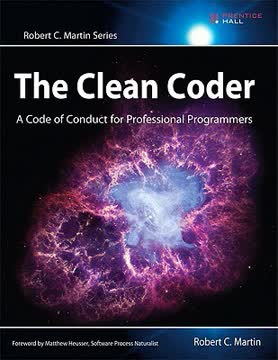


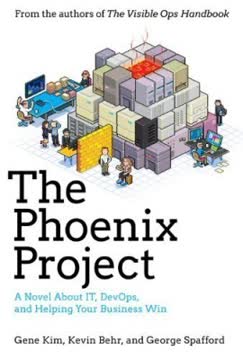
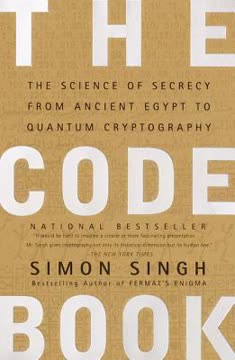



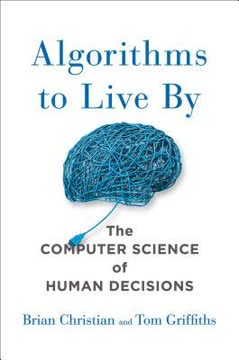
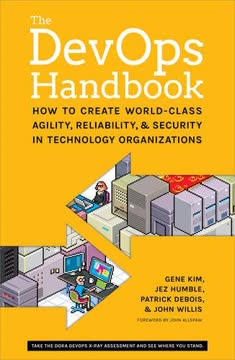
Download PDF
Download EPUB
.epub digital book format is ideal for reading ebooks on phones, tablets, and e-readers.





